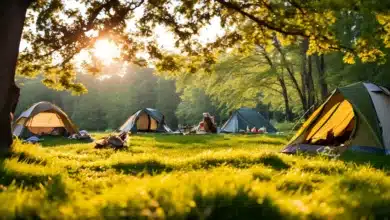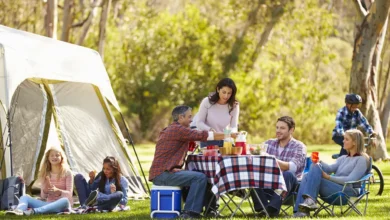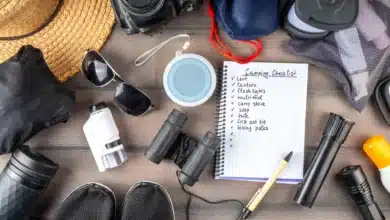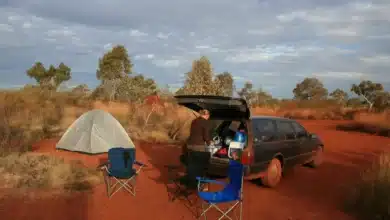Camping by the Sea in Greece
Your Guide to Coastal Camping in Greece: Tips, Tricks, and Campsites
Greece is one of the most popular camping destinations amongst experienced campers, and Camping by the Sea in Greece offers the perfect blend of coastal beauty and outdoor adventure. Whether you’re looking to relax on the beach or explore rugged landscapes, Greece has something for everyone.
The warm climate in Greece makes it a year-round destination that is suitable for all campers, regardless of their experience. The prices are usually low, the Greek cuisine is excellent, and the nature and adventure possibilities are endless. Many mountains are perfect for hiking, and bays with crystal-clear water
This article will give you tips and tricks on how to travel, including rules, regulations, and organising your trip. It also gives some inspiration for regions, camping sites, and activities. Your camper holiday in Greece will be perfect.
Camping in Greece: Rules, Costs, Tips
Camping in Greece allows you to enjoy the natural beauty of Greece, from its sun-drenched beaches to its rugged mountains. If you’re planning to camp in Greece, whether it is at a campsite or wild, make sure to read up on the rules and costs.
How to Travel by Camper Van to Greece
It is a long road to Greece. We promise, the journey will be worth it. There are many ways to get there. It is common to go through Italy first. You can then take a ferry from different cities to Greece. The land route can save you money on travel, as it is faster. Overland, you will travel over the Balkan Route. You should plan a maximum daily distance of 500-700km for the trip via Austria, Slovenia and Croatia. This is due to the numerous speed limits that exist in transit countries. The route is scenic and exhausting, but the highway system is well-developed and there are plenty of gas stations and rest areas.
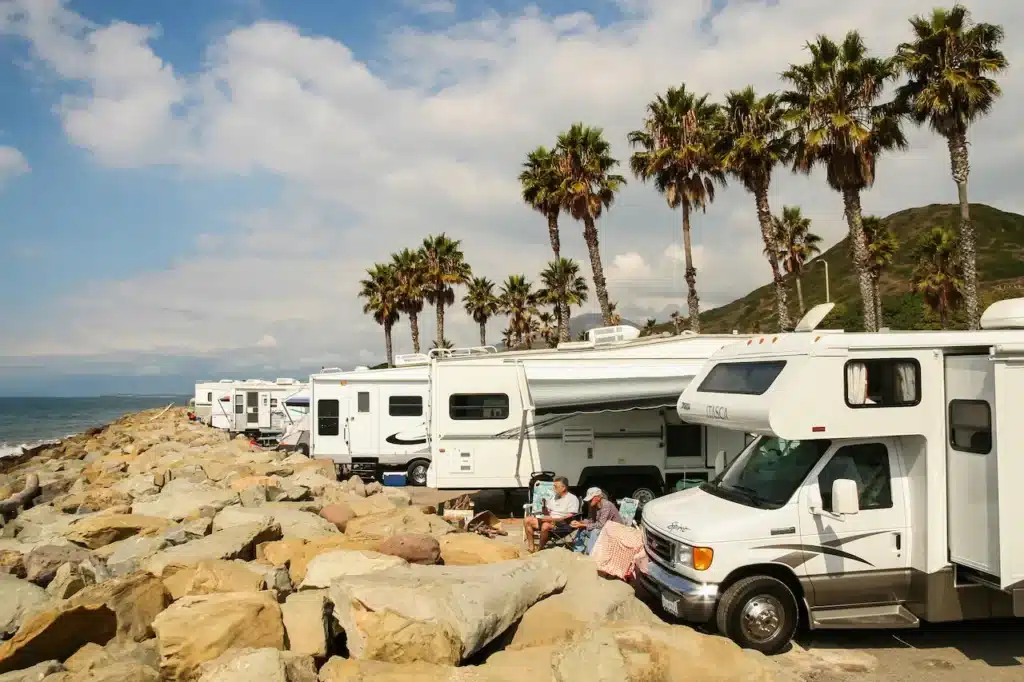
In Greece, a vignette will not be required. Paying cash or with a credit card at the toll booth is the best option. (Attention: For the route through Austria and Slovenia, a vignette has to be purchased in advance.)
As Greece is a member of the EU, the identification card, driving license, and vehicle documents (registration) of the camper are sufficient to enter. The children must also have an identification document. No passport or international driving license is required.
You can save time by crossing the border at night or early in the morning.
Traffic and Road Regulations for Greece
The rules of the road in Greece are largely identical to those in Germany. There are a few exceptions that you should be aware of. Watch out for parking spaces marked with different colours. Yellow indicates no parking, while blue signifies paid parking.
It is important to be aware of your behaviour when you are at roundabouts.
ATTENTION! In Greece, it is the person who enters the roundabout that has the right-of-way.
The following are the speed limits:
- Inner city: 50 km/h
- 90 km/hr out of town
- Motorways: up to 130 km/h
- Highways: 110 km/h
Stay and Costs
What is the cost of camping in Greece? Camping in Greece has many benefits. Greece is one of the most affordable places to vacation in Europe, provided you choose to.
The food is cheaper than German prices. The best way to support your vacation area is by shopping at local markets. Fruit is the freshest, and you are supporting the region directly.
Some pitches are completely free. The cost of a pitch with supplies and facilities varies depending on the provider. For more expensive campsites, you can expect to pay between 15-40 EUR.
Camping in Greece
How do I find a campsite? You can follow the signs if you’re spontaneous. In Greece, campsites are usually marked along main roads. You run the risk, though, of having to search for a very long time, or finding places that are fully booked, or don’t meet your needs. You can avoid this by using the traditional method. You can find parking spaces using apps like ProMobile and the ADAC app. www.camping.info is a camping portal that allows campers to book campsites. www.pincamp.de (the ADAC campsite finder) is also recommended. The Greek Camping Association has also created a website that will help you in your search. We recommend that you make a booking once you’ve made a decision. The location will often determine whether you make a reservation by phone or online. However, the sooner you book, the better.
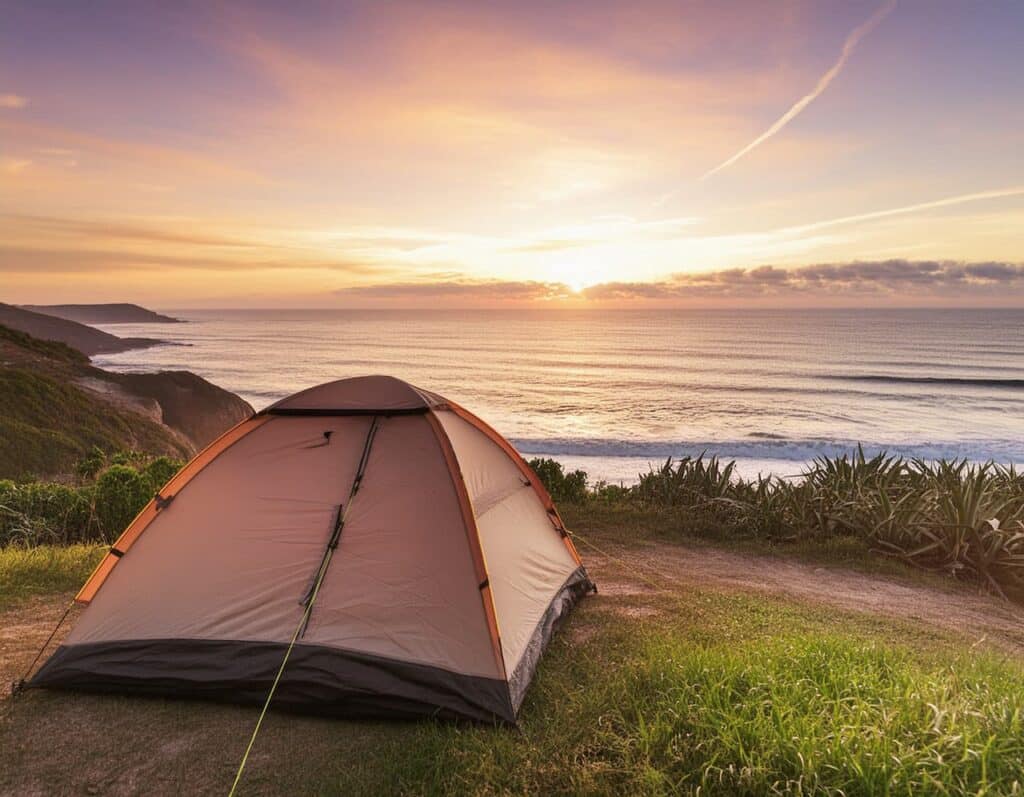
Wild Camping in Greece
Wild camping is not allowed in Greece. In Greece, it is illegal to park for free and spend the night in your car, motorhome or camper. This is a crime that is punished during the high season. In particular, this applies to tourist zones, nature reserves and beach areas. Costs can reach 3000 EUR. Wild camping is much less regulated outside of tourist areas, and in particular during the off-season. Many campsites close during this period. Camping in nature is the only option, so there are always some people camping on the side of the road.
Temperature and Climate
What’s the weather in Greece like? Answer: Fantastic, especially during the summer months of June to September. The temperatures range from 20deg °c to 33deg °c. Water temperature is also around 25deg °c. This makes it perfect for water and sports enthusiasts. In some places, such as Crete, it can be even hotter. It is therefore important to take plenty of water, protect yourself from the heat and do your physical activity in the morning or evening. The temperatures in the low season range between 15deg °c to 25deg °c. This allows for a camping holiday that is perfect even when the main tourist season has passed.
The Most Beautiful Destinations for Camping in Greece
Greece is a wonderful country. You can enjoy the warm weather and beautiful landscapes almost everywhere. There are still some places you shouldn’t miss when you visit Greece. So to speak, these are the classics of Greece. The monasteries of Meteora and the Acropolis in Athens, as well as the Peloponnese Peninsula, are some of the best Greek islands.
Camping in Lefkada
Lefkada, or Lefkas as it is also known, is an island located in the eastern part of Greece. It’s a dream destination for campers. This is mainly due to the absence of mass tourism. It is an island with a traditional Greek feel, but without too many tourist infrastructures. This makes it perfect for campers. White beaches, a west coast with crystal-clear water and a steeply sloped coastline, as well as hidden bays, idyllic mountain villages, and a steeply sloped west coast are all available. The island is easily accessible from the mainland via a bridge! It is very easy to get there.
Top campsites in Lefkada
- Camp Vassiliki Beach. This site is large and well-maintained. The sanitary facilities and all pitches are well shaded. There is no direct access to the sea at this campsite. However, the charming fishing village of Vassiliki, with its sleepy cobblestoned alleys and fresh fish served in the fish tavern, is worth a visit.
- Beach Camping Santa Maura: Located on the south-east coast of the island in Desimi Bay, this campsite offers spacious terraces with shade. It is a great place to stay.
Camping Thasos
Thasos, located in northeastern Greece, is a camping paradise. The island is known as The Green Island for its clean water, the friendliness of the locals and the cleanliness of the waters. The extensive olive and fruit-growing areas, as well as ideal hiking conditions, are the main reasons for this. The hiking trails lead along the coast, past abandoned villages and chapels, to green valleys, hidden springs, and to monasteries. The summer here lasts from May to October. Even in the heat of summer with temperatures over 30 degrees, it is pleasant on the beach thanks to Meltemi, a summer north wind characteristic of the Aegean.
Try the Thassiot tomato!
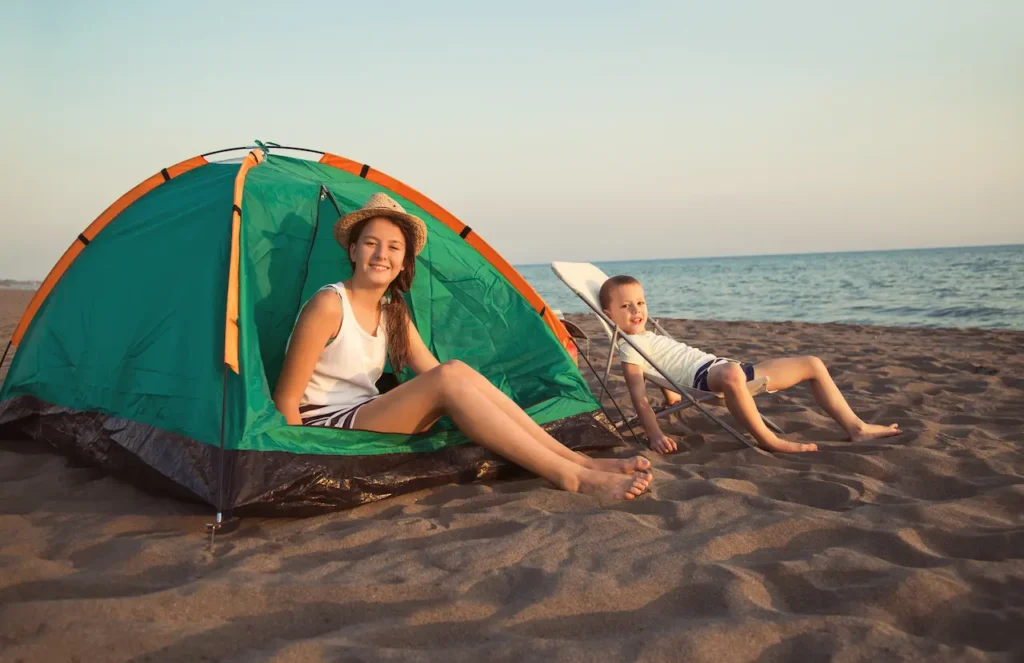
Top Campsites in Thasos
There are many great camping sites along the coast
- The campsite Dedalos, located in the northeastern part of the island, offers a peaceful and authentic Greek camping experience.
- The campsite at Pefkari Beach, which is located further south, is also directly on the beach. Camping in the shade of olive and pine trees. This is the most Greek thing you can do.
Google Maps also has wild camping spots marked. Get some information about the location in advance.
Camping in Crete
Enjoy 1,000 km of stunning coastline
Crete is the largest Greek island and is located at the southernmost tip of the country. It is often called the “Pearl of the Mediterranean”. Crete, with its many hours of sun, turquoise bays and small pottery villages, is more like a string of pearls. You can swim, snorkel, kite-surf, dive, pottery, and camp here!
Top campsites in Crete
- Camping Agia Roumeli is situated south of Chania, on the south coast of Crete. This is a free camping site directly on the beach with excellent sanitary facilities. It has only received 5 stars from Google.
- Camping Koutsounari is situated in the south-west corner of the island, and it offers direct access to the sea. The perfect conditions for a camping holiday!
Camping in Peloponnese
The history of the Greek peninsula is rich.
The peninsula of the Peloponnese lies in southern Greece. It is separated from mainland Greece only by the Isthmus of Corinth. Due to its proximity to the mainland, it is an ideal vacation destination for RVS and campers. It’s also a place filled with heroic sagas and legends. Camping in this area is a unique experience, thanks to the historical sites, ruins and excavation sites.
Top campsites in Peloponnese
- Erodios Camp: Erodios lies in the south-east of the Peloponnese. The location is in a peaceful, natural environment right next to the ocean.
- Camp Gythion Bay. This campsite is large, well-equipped and located directly on the beach.
Final thoughts and tips
It is best to go to Greece with a camper just before or right after the main season. The weather is warm enough to swim and enjoy a summer vacation in Greece in June, as well as September and October. You can also avoid the summer crowds by travelling in these months. Greece is also ideal for camping in the low season, which can be spring or fall. In many places, free-standing is allowed, and the temperatures are rarely so low that it becomes uncomfortable. We recommend that you plan a camping trip in Greece for about three weeks.
We’re confident that your trip will be a great one!
Adventures await!
